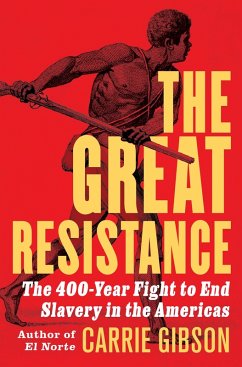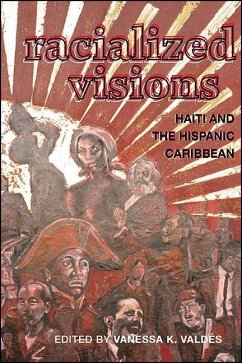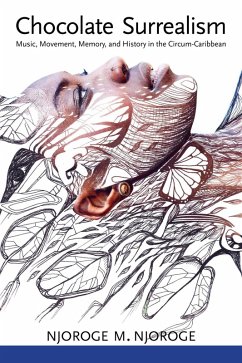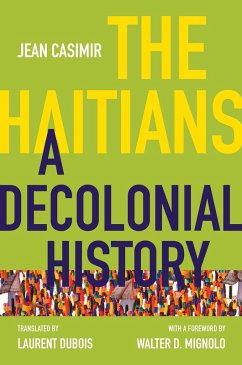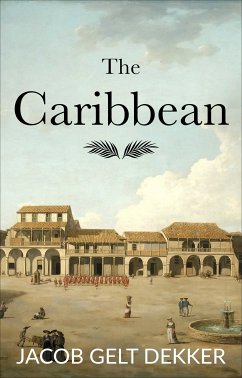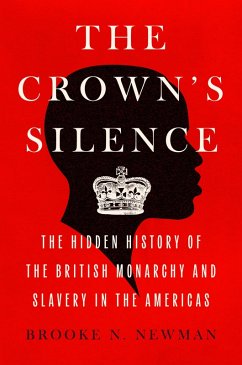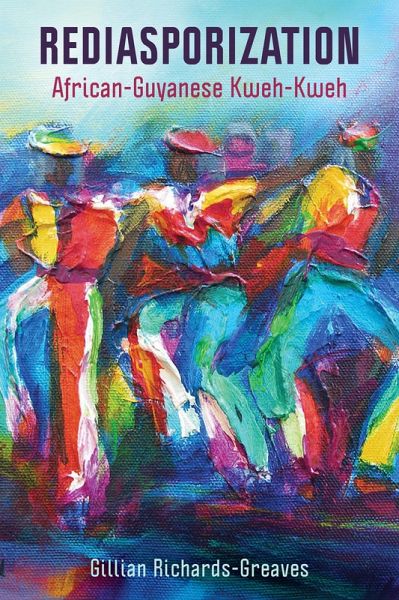
Rediasporization (eBook, ePUB)
African-Guyanese Kweh-Kweh
Versandkostenfrei!
Sofort per Download lieferbar
16,95 €
inkl. MwSt.
Weitere Ausgaben:

PAYBACK Punkte
8 °P sammeln!
Rediasporization: African-Guyanese Kweh-Kweh examines how African-Guyanese in New York City participate in the Come to My Kwe-Kwe ritual to facilitate rediasporization, that is, the creation of a newer diaspora from an existing one. Since the fall of 2005, African-Guyanese in New York City have celebrated Come to My Kwe-Kwe (more recently called Kwe-Kwe Night) on the Friday evening before Labor Day. Come to My Kwe-Kwe is a reenactment of a uniquely African-Guyanese pre-wedding ritual called kweh-kweh, and sometimes referred to as karkalay, mayan, kweh-keh, and pele. A typical traditional (wedd...
Rediasporization: African-Guyanese Kweh-Kweh examines how African-Guyanese in New York City participate in the Come to My Kwe-Kwe ritual to facilitate rediasporization, that is, the creation of a newer diaspora from an existing one. Since the fall of 2005, African-Guyanese in New York City have celebrated Come to My Kwe-Kwe (more recently called Kwe-Kwe Night) on the Friday evening before Labor Day. Come to My Kwe-Kwe is a reenactment of a uniquely African-Guyanese pre-wedding ritual called kweh-kweh, and sometimes referred to as karkalay, mayan, kweh-keh, and pele. A typical traditional (wedding-based) kweh-kweh has approximately ten ritual segments, which include the pouring of libation to welcome or appease the ancestors; a procession from the groom's residence to the bride's residence or central kweh-kweh venue; the hiding of the bride; and the negotiation of bride price. Each ritual segment is executed with music and dance, which allow for commentary on conjugal matters, such as sex, domestication, submissiveness, and hard work. Come to My Kwe-Kwe replicates the overarching segments of the traditional kweh-kweh, but a couple (male and female) from the audience acts as the bride and groom, and props simulate the boundaries of the traditional performance space, such as the gate and the bride's home. This book draws on more than a decade of ethnographic research data and demonstrates how Come to My Kwe-Kwe allows African-Guyanese-Americans to negotiate complex, overlapping identities in their new homeland, by combining elements from the past and present and reinterpreting them to facilitate rediasporization and ensure group survival.
Dieser Download kann aus rechtlichen Gründen nur mit Rechnungsadresse in A, D ausgeliefert werden.




